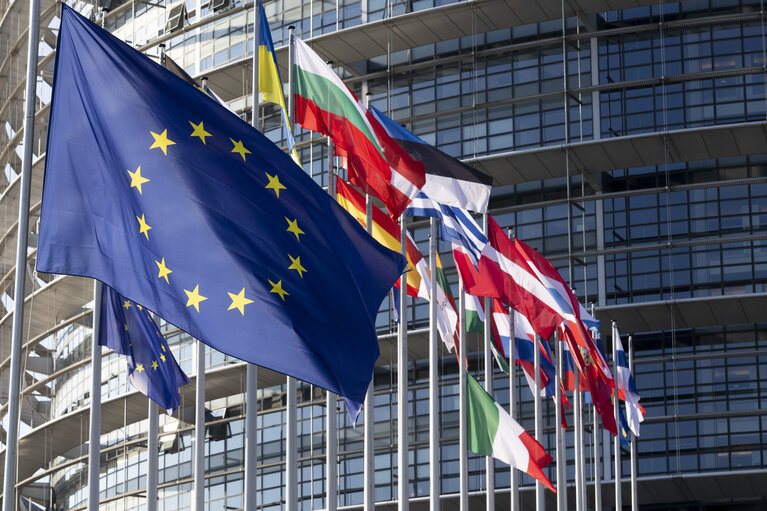This article is part of our collaboration with International Policy Review at IE University. You can read more in the series at the link above.

By Mariano Eduardo Abad Colino. Edited by Weronika von Lonski.
After World War II, Europe began a peacekeeping project that eventually became the European Union. Its main goals were peace, freedom, and enlargement. Today, enlargement is viewed as a geopolitical necessity in the EU’s best interest.
As stated in the treaties, all countries sharing the EU’s values can join the EU. However, nothing major has happened since the 2004 enlargement. In contrast, twenty years before 2004, many vital reforms came with enlargement. This stagnation is proof that the EU has lost momentum.
For example, Albania has been negotiating for over twenty years, and North Macedonia even changed its name, yet neither have become an EU Member State! These countries are making gigantic efforts, yet they still need to be granted access to the European Union. In addition, Europe currently has a black hole: the Balkans. Referring to the Balkans as “neighbours” of the EU is insufficient. Neighbours imply they are not part of the European family when it is undeniable that, historically, culturally and geographically, the Balkans have always been connected to Europe. To address this issue, candidate countries should be able to participate in union programs and be involved in EU work, allowing them to see concrete results and the benefits of EU integration: a process of gradual integration.
Similarly, Ukraine represents another challenge and an opportunity for the future of EU enlargement. Without Ukraine, there would be no reform or enlargement to discuss, and the EU would not be moving forward. Currently, Ukraine is in the process of reforming, and so its integration would represent a big step forward for the European Union. Unfortunately, some aspects of its system, such as the judicial framework, cannot be quickly reformed since it requires a more profound structural change to limit the influence of problematic actors from the past.
Despite the war, Ukraine is getting ready for EU membership. The choice of Ukraine to, amidst the war, align itself with European values and pursue EU membership is a lesson to be learned. The EU should include those who fight for democracy and the freedom to choose their laws. Ukraine’s accession is considered a geographical necessity that would significantly impact the Union. The financial burden of enlargement is expected to be nearly 200 billion euros, representing both a significant challenge and a unique opportunity for the European Union to expand.
Size matters on the world stage. Geopolitically, it would be a mistake to let difficulties dominate the conversation. Ukraine’s integration into the EU is essential; they have earned it through their commendable defence against Russian aggression. As Josep Borrell once said, “one thing is to wake up, another is to get out of bed and take action”. If the EU does not act now, other countries probably will. Ukraine’s strategic location, natural resources, and agricultural potential make it an invaluable partner for many nations.
Unanimity should only be preserved for significant issues such as treaties, enlargement, and budget reforms. For all other decisions, a super-qualified majority voting system might be more effective, as it would help speed up the decision-making process while preventing delays caused by the veto power of individual Member States. This inefficiency highlights broader EU coordination challenges, raising questions about the viability of a unified military defence system under “Europe à la carte”. Without a unified vision and stronger mechanisms for cooperation, the EU risks fragmentation.
The European Union needs to improve its decision-making process at the Member States level. Right now, it is very tough to foresee how decisions will be as they take too much time to see the light of day. Disagreements among Member States and challenges in boosting economies make moving forward difficult. The EU’s progress depends on strong political leadership to move decisions forward regarding enlargement or security. The EU must reform itself to be efficient, provide political answers, and legislate our concerns. To do so, it needs will and an institutional framework. Otherwise, the EU will be considered unfit to answer Europeans’ needs.
Other posts that may interest you:
Discover more from The Sundial Press
Subscribe to get the latest posts sent to your email.




